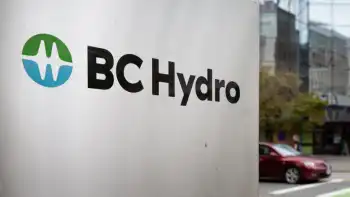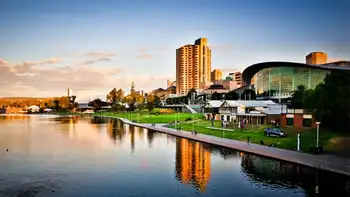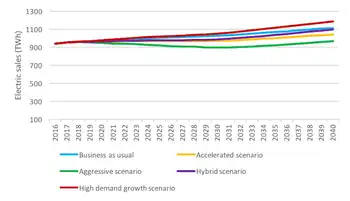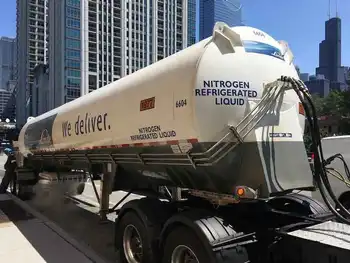SYDNEY, AUSTRALIA - Members of an alleged Islamic terror cell in Sydney were stockpiling bomb-making materials, training in terrorism at Outback hunting camps, and sizing up Australia's only nuclear reactor as a possible target, according to details of Australia's biggest counter-terror investigation.
In an alarming 20-page document, made public by Sydney's Central Local Court, police said eight suspects arrested recently in Sydney had the know-how and were assembling the ingredients — from chemicals and detonators to digital timers and batteries — to carry out a deadly major attack. It listed a nuclear reactor used to make radioactive medical supplies on the southern edge of Sydney as a possible target. Police did not comment on the document, but the allegations paint a picture of radical Sunni Muslim men, led by an extremist preacher, who were accumulating the potentially lethal tools and materiel of the world's modern-day terrorist. TATP, triacetone triperoxide, is a highly unstable explosive made from such available chemicals as hydrochloric and sulfuric acids, brake fluid and hydrogen peroxide. Police said they found two dozen bottles of hydrogen peroxide solution stashed on public land behind the home of one suspect, Khaled Sharrouf. In October, Sharrouf was arrested for trying to steal six digital timers and some 130 batteries from a hardware store, police said. Another alleged cell member, Abdul Rakib Hasan, tried to buy laboratory equipment and a 100-litre cooler that detectives said was to store chemicals. Two other men, whose identities were not released, visited an auto parts wholesaler to buy 200 litres of brake fluid and 300 litres of sulfuric acid, police say. "They were informed by the manager that the combination of sulfuric acid and brake fluid was a highly volatile mix" and asked for their business details, according to the statement. The men said they would come back the next day but never returned. Three Sydney suspects, including two now in custody, visited a radical Muslim leader in the southern city in February. Sharrouf told firebrand Algerian-born cleric Abdul Nacer Benbrika, known as Abu Bakr, that he wanted to be a martyr for jihad, or holy war, police said. Abu Bakr allegedly replied: "If we want to die for jihad then we have to have maximum damage. Damage their buildings, everything, damage their lives." In a Sydney sermon July 31, Abu Bakr said, "If your mother says no jihad, then no jihad," according to quotes transcribed from surveillance tapes. "Two days later (suspect Mazen) Touma requested permission from his mother to undertake jihad," the police statement said. When Moustafa Cheikho was arrested at home, two semiautomatic pistols, two samurai swords and various chemicals were found. Police allege several took hunting-camping trips in March and April near the Outback town of Bourke, as jihad training. In New South Wales in December 2004, police stopped Touma, Mohammed Elomar and Abdul Rakib Hasan near the Lucas Heights nuclear reactor.
It listed a nuclear reactor used to make radioactive medical supplies on the southern edge of Sydney as a possible target.
Police did not comment on the document, but the allegations paint a picture of radical Sunni Muslim men, led by an extremist preacher, who were accumulating the potentially lethal tools and materiel of the world's modern-day terrorist. TATP, triacetone triperoxide, is a highly unstable explosive made from such available chemicals as hydrochloric and sulfuric acids, brake fluid and hydrogen peroxide.
Police said they found two dozen bottles of hydrogen peroxide solution stashed on public land behind the home of one suspect, Khaled Sharrouf. In October, Sharrouf was arrested for trying to steal six digital timers and some 130 batteries from a hardware store, police said.
Another alleged cell member, Abdul Rakib Hasan, tried to buy laboratory equipment and a 100-litre cooler that detectives said was to store chemicals.
Two other men, whose identities were not released, visited an auto parts wholesaler to buy 200 litres of brake fluid and 300 litres of sulfuric acid, police say.
"They were informed by the manager that the combination of sulfuric acid and brake fluid was a highly volatile mix" and asked for their business details, according to the statement. The men said they would come back the next day but never returned.
Three Sydney suspects, including two now in custody, visited a radical Muslim leader in the southern city in February.
Sharrouf told firebrand Algerian-born cleric Abdul Nacer Benbrika, known as Abu Bakr, that he wanted to be a martyr for jihad, or holy war, police said. Abu Bakr allegedly replied: "If we want to die for jihad then we have to have maximum damage. Damage their buildings, everything, damage their lives."
In a Sydney sermon July 31, Abu Bakr said, "If your mother says no jihad, then no jihad," according to quotes transcribed from surveillance tapes. "Two days later (suspect Mazen) Touma requested permission from his mother to undertake jihad," the police statement said.
When Moustafa Cheikho was arrested at home, two semiautomatic pistols, two samurai swords and various chemicals were found.
Police allege several took hunting-camping trips in March and April near the Outback town of Bourke, as jihad training.
In New South Wales in December 2004, police stopped Touma, Mohammed Elomar and Abdul Rakib Hasan near the Lucas Heights nuclear reactor.
Related News

BC Hydro electricity demand down 10% amid COVID-19 pandemic
VANCOUVER - Elecricity demand is down 10 per cent across British Columbia, an unprecedented decline sparked by the COVID-19 pandemic, according to a BC Hydro report.
Power demand across hotels, offices, recreational facilities and restaurants have dwindled as British Columbians self isolate.
The shortfall means there's a surplus of water in reservoirs across the province.
"This drop in load in addition to the spring snow melt is causing our reservoirs to reach near capacity, which could lead to environmental concerns, as well as public safety risks if we don't address the challenges now," said spokesperson Tanya Fish.
Crews will have to strategically spill reservoirs…




